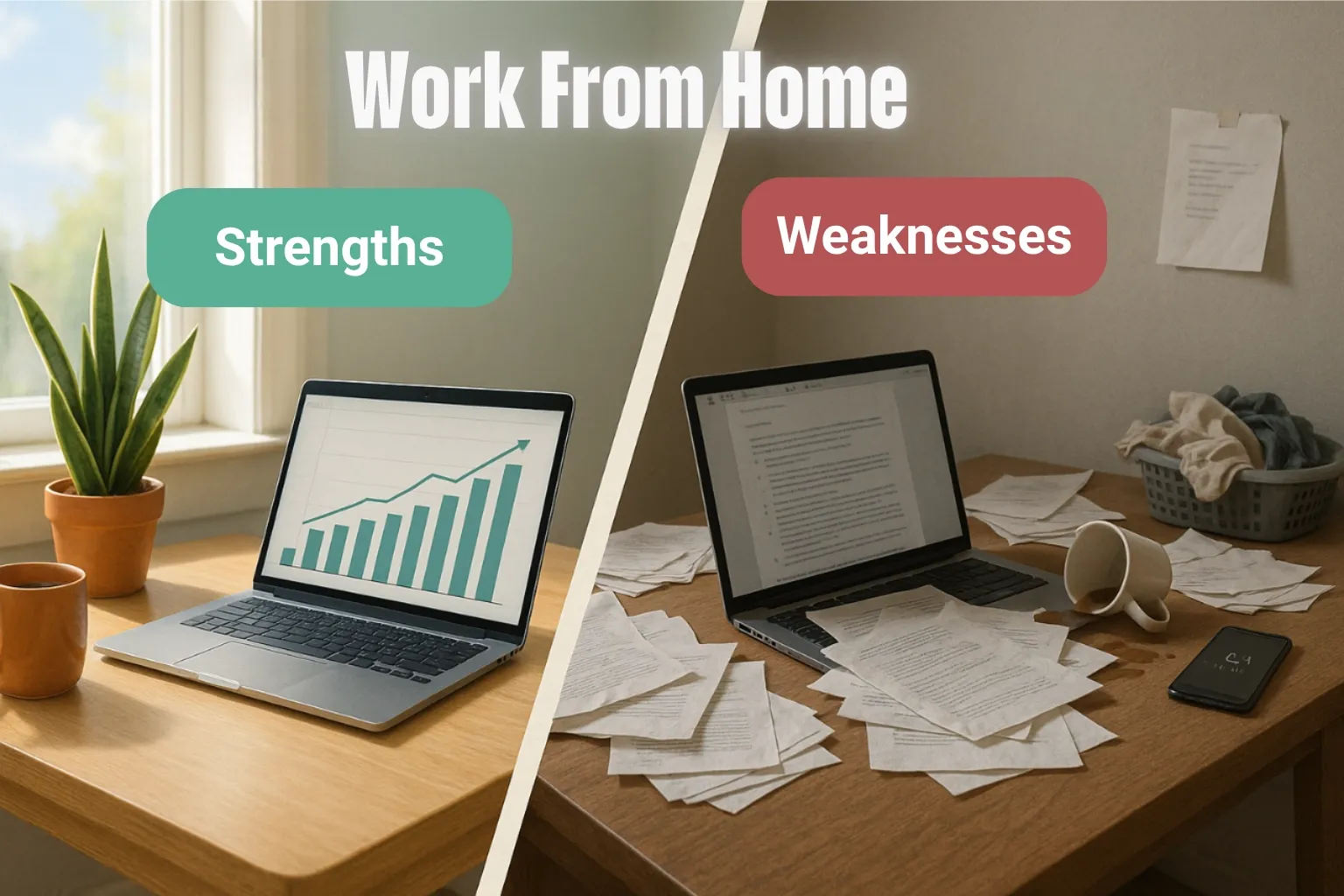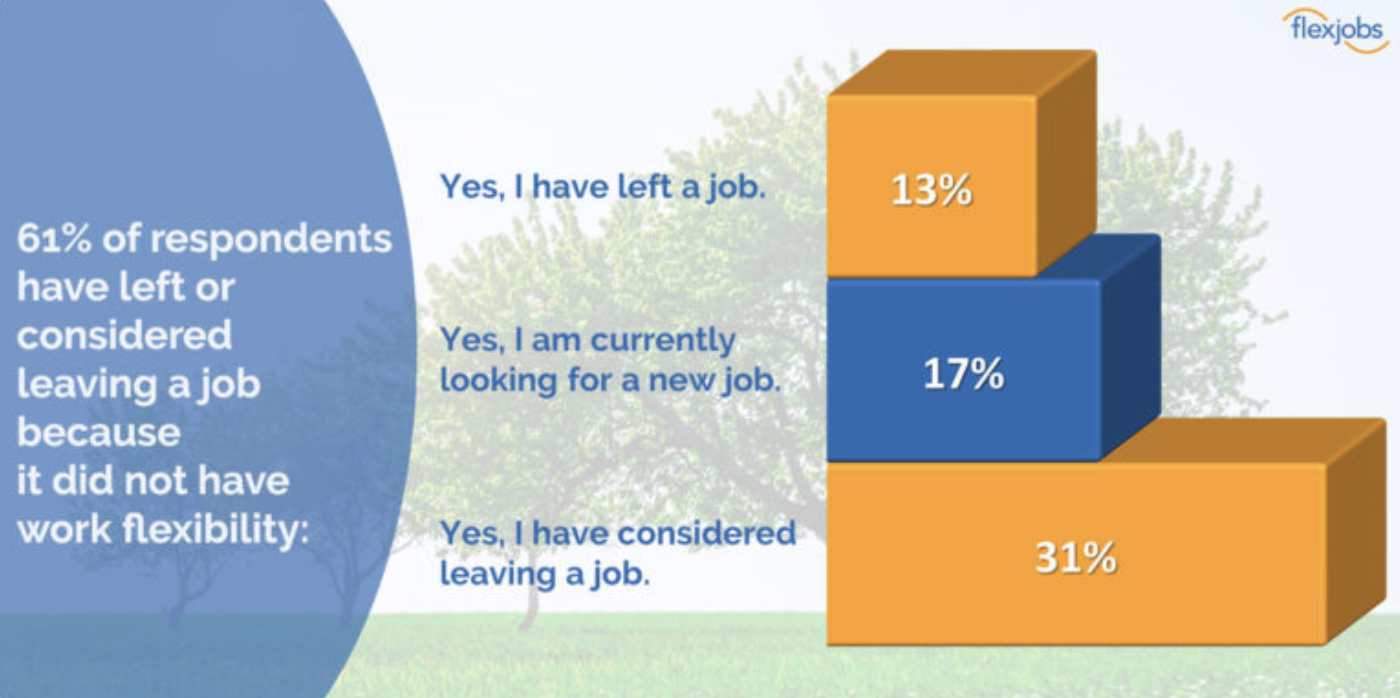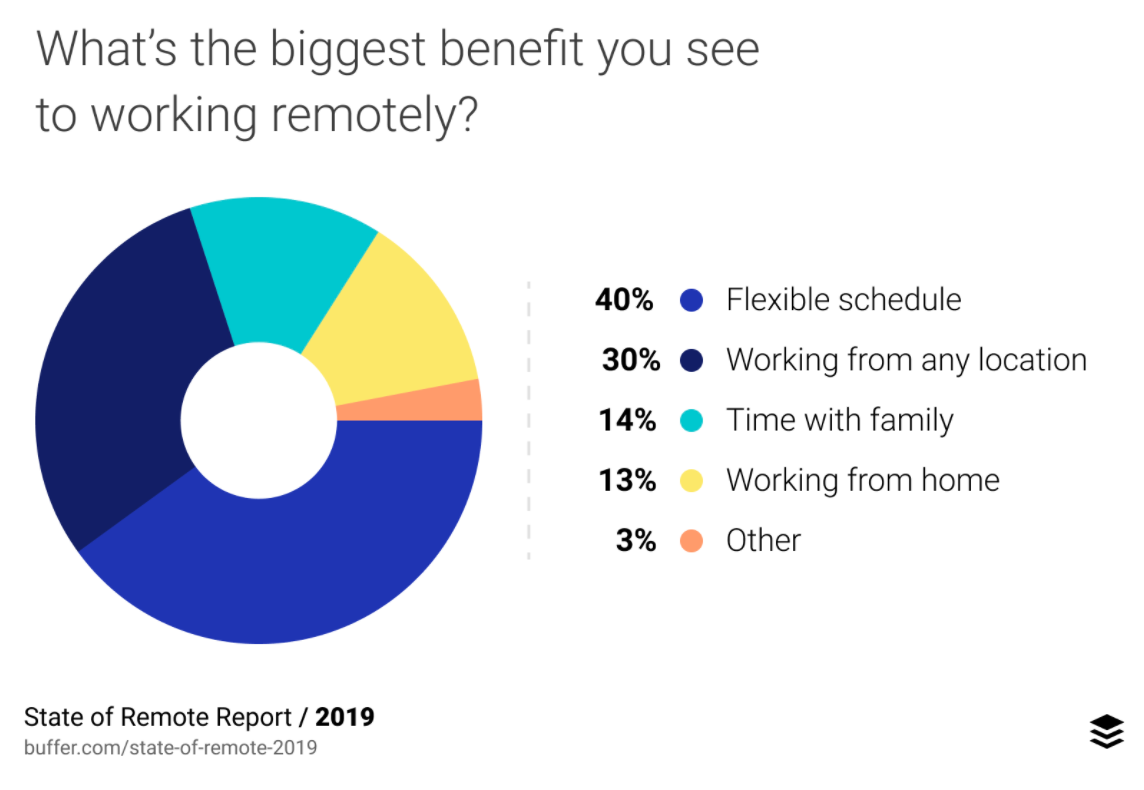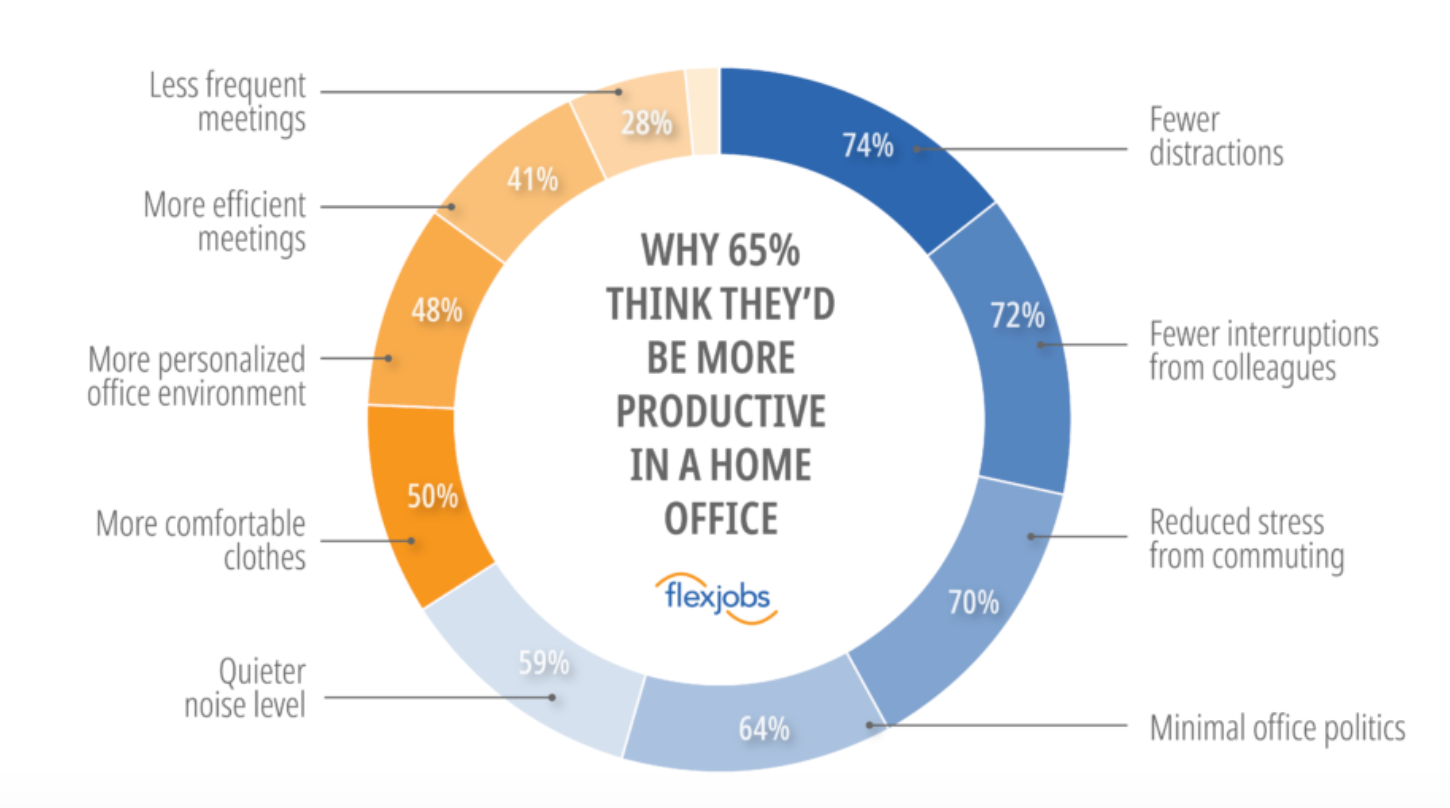16 Advantages and Disadvantages of Working From Home in 2026

Summary:
-
Key benefits of remote work are freedom in work, flexibility in scheduling, improved productivity, better focus, and a balanced life.
-
Work-from-home cons include the risk of no professional growth, poor communication, difficulties in team collaboration, and mental health issues, followed by loneliness.
As much as remote work has become popular, it offers several advantages and disadvantages down the road. No matter how remote workers love this idea, the downsides can hurt them as well as the business. Let’s quickly go over them.
In this Article
- What is working from home
- Pros and cons of working from home
- Overcome the challenges of working remotely or from home
What is Working From Home?
You fulfill professional responsibilities right from your residence. That’s working from home. I mean, truly. That’s the whole idea. This is also known as remote work.
But that’s just scratching the surface.
Today, this practice is adopted throughout different industries. And that’s for a good reason. Office workers often struggle with the nature of office work and its rigid demands.
Just as Mark Zuckerberg said -
“People are more productive working at home than people would have expected. Some people thought that everything was just going to fall apart, and it hasn't.”
Studies also prove that remote work boosts productivity. Reduces health implications, solves work-family conflicts, increases energy levels, and so much more.
We’ll explore them in detail in later sections.
Challenges, however, do exist. And they can be cruel at times.
For example, 25% of remote workers feel their social interaction skills have gone down. Quite a bit, honestly. [Source: New York Post]

Pros of Work From Home
Not only does working from home benefit remote employees, but it also translates to boosting a business.
The primary advantages of this newly adopted work culture are as follows:
Zero Commute Time
Removal of the daily commute is one of the biggest advantages of working from home. Just in the U.S average one-way transport takes up to 27 minutes. Which totals to almost an hour every day.
But, in a remote work life, employees save about 55 minutes daily. And 40% of them use this time for primary or secondary jobs.
Flexible Work Schedule
People working from home can break the shackles of a rigid 9-5 work schedule.
Unlike regular work hours, remote jobs provide a flexible schedule and lifestyle.
A typical office worker faces office constraints. They limit freedom. The lack of flexibility can severely impact employee morale.
This makes a remote employee proactive and with positive experiences. Down the road, it translates to notable productivity gains.
A research by Fundera found that 2 out of 3 managers say work-from-home employees are more productive.
Also, the A research by Flexjobs survey shows 61% of employees left or, at least, considered leaving their job due to a lack of flexibility in the company.

Dr. Ken Matos, director of People Science, Culture Amp, talked about his flexibility at work. He shared,
"People today really value workplace flexibility and remote work because it allows them to focus their energies on work and life as opposed to commuting."
More Freedom
Employees are capable of creating a structured routine that is tailored to them. It will bring harmony between work and personal responsibility. This creates a sense of empowerment and reduces stress levels.
Speaking of which, the National Library of Medicine found out that more than 70% of people enjoyed more freedom in the remote work environment. Also, they performed more creatively in their job.
This creates a deeper understanding of work-life integration. That is, an indication of reduced mental health issues.
See, the experience of a remote worker for two decades is even more exciting. He got to be a more present father thanks to this flexibility. For example, he attended kids’ school events. Handled crucial family needs without jeopardizing professional responsibilities.
Cost Savings
A remote employee can save anywhere between $2000 to $7000 annually. Just by cutting down the daily commute, food, and professional apparel expenses.
In addition, 92% of American employees are concerned with the high cost of fuel, with 80% of them citing the cost of going to work only.
Also, 73% of workers think that their organization should help in reducing the overall costs of commuting to work.
Apart from employees, companies can financially take advantage of remote work arrangements. They reduce terms of office space and related electricity costs.
Just so you know, IBM saved $50 million by getting rid of office space. Thanks to remote teams. Similarly, McKesson slashes $2 million from their overall cost.
Higher Focus and Productivity Levels
91% of remote workers in 2021 found themselves more or equally productive in a comfortable work environment. They prefer this over a traditional office setting. Because the downside of office work often includes frequent pauses.
Now, working from home is free from office distractions.
For example, no phone ringing, no interruptions from colleagues, or other noises. This helps people maintain 100% focus on the work.
Boost remote team productivity without distractions
Enhanced Technical Ability
Telework makes workers technically sound. Because they need to use Google Meet, Teams, Zoom, or other platforms for communication.
Also, for better data handling, programs like Google Sheets or Microsoft Excel are required.
Plus, remote work opens the door for a rich learning experience. It helps someone with subpar technical skills master digital devices effectively. This creates skilled teams across organizations.
Better Job Satisfaction
Remote jobs pave the way for a comfortable work environment. This is the result of flexibility and autonomy. So, what does this mean?
In a nutshell, this provides happy and positive experiences to employees.
A survey conducted by Apollo Technical shows, nearly 82% of staff working from home are happier in their jobs.
More Family Time
Being detached from family is difficult. For employees, following a rigid 9-5 work schedule, a sense of disconnection is born. And it’s the harsh reality for office employees.
The advantages of office work don't always outweigh these personal costs.

Since 2013, 44% of employees interviewed would want a flexible job to spend time with their families.
Working from home solves this issue. It allows you to balance family responsibilities, personal activities, and work.
Enjoy remote work with time tracking
Opportunities for Healthier Routines
Working from home provides the best opportunities for a healthy lifestyle. Use the saved time on your commute and repurpose it for a healthier daily routine.
You can take regular breaks and enjoy proper lunch breaks at home.
According to The Guardian, 86% of hybrid workers say that the extra time they get working from home has improved their well-being.
Namely, better work-life balance, better sleep, nutritious home-cooked meals, and reduced stress levels. They can maintain a life balance more effectively.
On that note, remote work culture solves many mental health issues.
For example, 84.6% of employees get more time with family. And 71.9% pass time with friends. All of this contributes to a boost in emotional well-being and health outcomes.
Caitlin Reddington, Junior Digital Editor at All Things Hair US, further solidifies this benefit by saying,
"Sticking to my schedule helped me stay productive while working at home. I also enjoyed taking advantage of my free time. I feel like I’m always on the go, and it’s nice to catch up with friends I haven’t talked to in a while, watch TV shows I’ve wanted to see, and exercise".
Cons of Working From Home
Getting too comfortable is counterproductive for remote work. And a multitude of factors are always there, no matter what. Office environment challenges exist in both settings.
So, here are the disadvantages of working from home:
Isolation & Loneliness
When you work alone for too long, that creates a sense of separateness in your head. You miss hanging out with colleagues and casual interactions.
The Gallup report suggests that 25% of fully remote workers feel lonely. That's 9 percent more than people working in an office environment. This may lead to lasting mental health issues down the line.
A study on the U.S remote employers brought out a scary reality. The loneliness due to the absence of regular interaction increases stress levels. It impacts their performance. As a result, it costs U.S. employers $154 billion each year. [Source: Harvard Business Review]
Now, the horror that comes with a lack of contact with colleagues in real life is even more heartbreaking.
One remote employee shares in Business Insider, he worked remotely for 4 years. He missed the presence of colleagues.
The loneliness got so bad that he had to quit.
Home Office Setup Cost
Without a proper working environment, you waste resources. And productivity drops like flies.
So, a comfortable work environment is a necessity. Remember that your desk location and geographic location matter significantly.
This calls for a moderate investment, depending on the type of work you do. But the most common ones are a good laptop or desktop.
A strong internet connection, a microphone, headphones, an ergonomic chair, a desk, and some other accessories. You'll also need a proper air conditioner setup for comfort.
All of these can cost a few thousand dollars. Some organizations, however, may contribute a fair amount.
Risk of Overworking & Burnout
With full attention to work and accountability, you may compromise your personal life. Work hours may extend more than 8 hours without even realizing it.
Like, you might find yourself responding to emails after hours. This is an issue that work-from-home employees often experience.
It consumes personal time and often spoils life balance. For people with children, it is even more frustrating. Dealing with a sick child during normal working hours can create additional stress.
Statistically, 70% of remote workers in 2023 alone experienced burnout. Compared to 2022, they worked 44% more hours. This creates a significant hit to employee productivity.
On that note, overworking poses severe physical health risks. The Sun reports that working over 52 hours may change in brain structure. This may affect memory and decision-making.
The intensity of burnout in public health is evident from experts' remarks. For example,
“We need to stop blaming individuals and treat physician burnout as a system issue … If it affects half our physicians, it is indirectly affecting half our patients.”
M.D. Practices at Stanford Health Care
Putting up Lisa Occhino’s story paints a better picture. She moved to Portugal from New York. After working a year remotely, she experienced burnout. She had to take a year off and focus on physical health.
Allocate time and work smarter to avoid burnout
Household Distractions and Noise
Home presents a lot of distracting elements. Children, pets, social interaction, and personal activities come in the way. It’s one of the biggest challenges of achieving office dynamics at home.

A survey was conducted by The Sun on 2000 British remote employees. It revealed a shocking reality. Four out of ten reported they are distracted at home. This affects productivity levels.
The research of the University of California, Irvine shows that to get back to the previous focus state, it takes roughly 23 minutes.
So with every interruption, you are losing work time. Regular breaks become random and unplanned.
Chance of Productivity Drop
Remote work provides flexibility. Less gossip with fellow office workers. And more happy hours. No wonder these contribute to more productivity.
However, all these perks come with a potential risk of blocking regular work hours.
See, personal life situations and the desire to spend time with family persuade you to take more breaks. Especially people with children. Because you can, at your will!
OECD’s research also reveals that productivity drops due to excessive remote work. The absence of a structured environment can lead to decreased focus.
Then again, most of the managers don’t like disconnection from team dynamics. Only 15% feel comfortable managing a remote team. Complex work tasks, as a result, become harder to complete. And productivity fall is natural.
To avoid that, some managers promote monitoring software for employees to keep everything in check.
Boost productivity with time management
Poor Workplace Communication
Absence of an office setting disrupts effective communication. A structured environment will help you connect with experienced colleagues.
Without such interactions, job satisfaction fades due to misunderstanding.
A study by the University of California finds that remote workers collaborate 25% less with office employees. They can't easily message colleagues or have spontaneous discussions.
This holds them back from growing professionally.
So, a dedicated office is necessary to understand work better. The lack of body language cues makes communication challenging.
In the real world, IBM experienced severe miscommunication between teams during telecommuting. So they pulled employees back to the physical office.
Weak Team Collaboration
Lack of contact with colleagues affects office dynamics. For example, you will miss out on body language and helpful discussions. This has negative impacts on professional lives in the long run.
Working from home can break down cross-team interaction and team structure. A study on 61,182 Microsoft employees revealed this truth.
Another survey by Buffer shows, 17% of remote workers reported they faced challenges. Especially in teamwork. They feel disconnected from skilled teams.
Eliminate remote team management difficulties
How to Overcome Remote Work Challenges?
Encourage Collaboration
Schedule daily and weekly virtual stand-up meetings. Employ regular team discussions to build trust and confidence among employees.
Hold online events like game events or webinars to improve communication. Use a single communications solution for all team interactions.
Prevent Burnout
Set a clear boundary between work hours and break times. Do not allow employees to mix up professional and personal time. Use the Pomodoro method to let teams rest and recharge. Monitor their activity patterns.
Set up a Proper Home Office
Get an ergonomic chair and desk if you work from home. Your workspace must be comfortable to deliver the best work. Consider your desk location carefully to ensure comfort.
Connect to a stable internet connection for uninterrupted workflow. Not to mention a good laptop or desktop and other necessary hardware.
All of these will help you regain focus.
Pay Attention to Communication
Join platforms that support asynchronous work and collaboration. Doing this will vastly improve workforce management and efficiency.
Study exploratory factor analysis to read communication patterns correctly. This can be an optimal solution to handle a remote team.
Manage Time Efficiently
Maintain a to-do list daily. It’s a neat technique to stay on task. Always engage in one task at a time. Multitasking, most of the times, degrade the work quality. Use a time tracker to create a structured environment.
These practices will help you maintain a great work-life balance.
Conclusion
As you can see, working from home has good points and bad points.
The good points are that you can be flexible with your time and feel comfortable. The bad points are that you might feel lonely and get distracted easily.
You need to know yourself well.
Do you work better alone? Or do you need to be around other people? Do you like making your own schedule? Or do you need someone else to give you structure?
The goal is simple. You want a work life that makes you happy and keeps you healthy.
Frequently Asked Questions about The Advantages and Disadvantages of Working from Home
What are the pros and cons of working from home?
Work from home pros include the elimination of commute time. Increased productivity, more personal time, cost savings, and better physical health, etc.
What is the biggest problem with working from home?
Poor communication and a sense of disconnection from fellow office workers are the two problems. It may impact employee health and job satisfaction negatively.
Why working from home is better for you?
It provides more time with family, healthier meals, and flexibility in scheduling. Also, improves life balance and daily commute stress.
Are work at home jobs worth it?
Yes, particularly for people with children. These jobs create less stress from office constraints. And better vacation time flexibility.
What are the pros and cons of remote work, and how can one thrive in it?
Flexibility in scheduling, reduced costs, improved focus, and productivity are the main advantages. To thrive, maintain a dedicated office time and take regular breaks.
What are the pros and cons of working from home in terms of work-life balance, productivity, and employee satisfaction?
Well, it improves employee satisfaction and productivity level. Thanks to more personal time. Lack of contact with colleagues, however, may damage professional lives.
What are the potential benefits and drawbacks of remote work becoming a permanent fixture in the workplace?
Notable productivity gains and fewer health outbreaks are great benefits. Yet often overlooked. Permanent remote work, however, spoils office dynamics. Also, hold up a rich learning experience.
What are the pros and cons of remote work from a freelancer's perspective?
Freelancers enjoy flexibility and no daily commute. Also, better work-life balance and more control. However, they struggle with unstable income and disconnection from team dynamics. Besides, putting up with responsibilities and maintaining boundaries is difficult.
What are the pros and cons of working on your own?
You get more personal and family time, flexibility, and freedom working on your own. It is easier to maintain a healthy lifestyle, too. Not being able to share thoughts on a variety of tasks with experienced co-workers is a big miss.
How can companies effectively manage a remote workforce?
Companies need to take advantage of modern digital tools to manage a remote workforce. For example, remote employee monitoring software and remote VoIP solutions. They must support regular work hours as well.
Should you work from home?
You should work from home if you can maintain integrity, focus, and productivity up to the mark. However, you must be prepared to tackle mental health issues from a lack of daily interactions.
The biggest disadvantage of WFH?
Absence of structured routines is the biggest disadvantage of work from home. It directly affects employee productivity.
Is working mom life better when you work from home?
There’s no better way than working from home for a mom. It is an absolute necessity for performing family responsibilities. For example, taking care of a sick child, cooking, and the rest of the family members.
